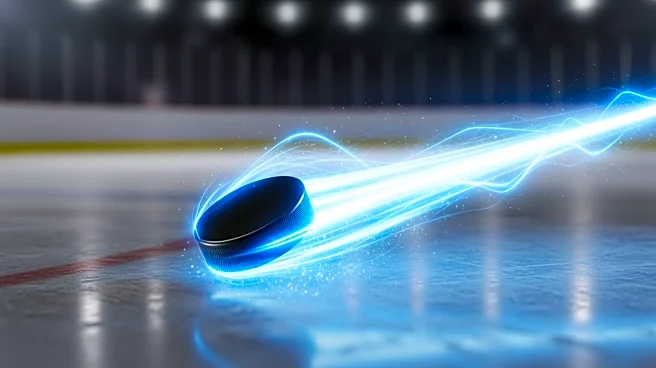What's Happening?
The Winnipeg Jets have demonstrated a strong start to their penalty kill in the new NHL season, successfully killing off 14 of 15 shorthanded situations. Under the guidance of assistant coach Dean Chynoweth,
the team has become more comfortable with the penalty kill system, focusing on increased aggression and coordination. Despite taking numerous penalties, the Jets have managed to maintain an effective penalty kill, which is crucial for their overall performance. The team aims to improve their penalty kill ranking, striving to be in the top 10 in the league. Structural and personnel changes have been implemented to enhance the penalty kill, with new players like Cole Koepke, Tanner Pearson, and Jonathan Toews contributing to the effort.
Why It's Important?
A strong penalty kill is vital for the Jets as it can significantly impact their ability to win games and maintain a competitive edge in the league. Effective penalty killing reduces the risk of conceding goals during shorthanded situations, which can be game-changing. The team's focus on improving their penalty kill reflects their commitment to strengthening all aspects of their gameplay. This strategic emphasis can lead to better overall team performance and increase their chances of success in the season.
What's Next?
The Jets will continue to refine their penalty kill strategies, focusing on perfecting player reads and coordination. As the season progresses, the team will assess the effectiveness of their current system and make necessary adjustments. The return of key players like Adam Lowry and Dylan Samberg, who are currently out due to injuries, will be anticipated to further bolster the penalty kill unit. The coaching staff will likely explore different player combinations and tactics to optimize the penalty kill.
Beyond the Headlines
The development of the Jets' penalty kill highlights the importance of adaptability and strategic planning in sports. The ability to adjust tactics and integrate new players is crucial for maintaining competitiveness. Additionally, the focus on penalty kill reflects broader trends in hockey, where teams increasingly prioritize specialized units and systems to gain an advantage. The cultural and psychological aspects of team dynamics, including player confidence and morale, play a significant role in the success of such strategies.









